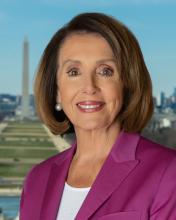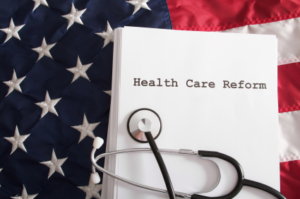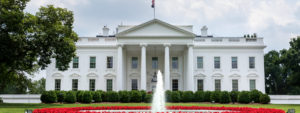Delay Medicaid DSH Cut, Pelosi Says
Medicaid DSH cuts should be delayed, House Speaker Nancy Pelosi (D-CA) told a gathering of hospital officials.
 According to Speaker Pelosi,
According to Speaker Pelosi,
DSH cuts threaten to erode the health of community hospitals, safety-net hospitals and rural hospitals, [affecting] the health of not only the families that rely on Medicaid, but any person who relies on these hospitals for care.
SNAP members all receive Medicaid DSH payments and would be harmed if the scheduled cut takes effect on October 1.
Learn more about Speaker Pelosi’s remarks in the Becker’s Hospital Review article “House speaker urges Congress to ease Medicaid payment cuts to hospitals serving low-income patients.”
 According to the Urban Institute report, repealing the entire Affordable Care Act would add almost 20 million Americans to the ranks of the uninsured. Medicaid and CHIP enrollment would fall by 15.4 million people and millions of others would lose the tax credits they used to purchase insurance. Some would purchase insurance with limited benefits and individual plan premiums would rise while others would go uninsured.
According to the Urban Institute report, repealing the entire Affordable Care Act would add almost 20 million Americans to the ranks of the uninsured. Medicaid and CHIP enrollment would fall by 15.4 million people and millions of others would lose the tax credits they used to purchase insurance. Some would purchase insurance with limited benefits and individual plan premiums would rise while others would go uninsured. The
The  Last week the Medicaid and CHIP Payment and Access Commission released its annual report to Congress, with most of the report focusing on its analysis and recommendations for policy updates involving Medicaid disproportionate share hospital payments (Medicaid DSH) and Medicaid upper payment limit payments (UPL payments).
Last week the Medicaid and CHIP Payment and Access Commission released its annual report to Congress, with most of the report focusing on its analysis and recommendations for policy updates involving Medicaid disproportionate share hospital payments (Medicaid DSH) and Medicaid upper payment limit payments (UPL payments). MACPAC commissioners discussed several statutory changes that would seek to minimize the impact of the court ruling:
MACPAC commissioners discussed several statutory changes that would seek to minimize the impact of the court ruling: Some are implementing hospital or insurer taxes while others are increasing existing taxes on hospitals and health insurers. New Hampshire is directing part of the proceeds from a liquor tax for this purpose and other states have introduced cigarette taxes. Some are charging premiums to Medicaid beneficiaries and introducing work requirements for their Medicaid population so they can reduce overall enrollment. Many are using money from their general revenues.
Some are implementing hospital or insurer taxes while others are increasing existing taxes on hospitals and health insurers. New Hampshire is directing part of the proceeds from a liquor tax for this purpose and other states have introduced cigarette taxes. Some are charging premiums to Medicaid beneficiaries and introducing work requirements for their Medicaid population so they can reduce overall enrollment. Many are using money from their general revenues. The following is MACPAC’s own summary of the sessions.
The following is MACPAC’s own summary of the sessions. While many, including members of Congress, insist that the administration cannot move forward with such a proposal without legislation, others suggest that the administration may offer states the opportunity to participate in Medicaid block grants voluntarily, by seeking a federal waiver. What remains to be seen is whether the prospect of greater flexibility to shape their own Medicaid programs is sufficient to entice states to participate in an approach that almost certainly would result in less federal money for those programs.
While many, including members of Congress, insist that the administration cannot move forward with such a proposal without legislation, others suggest that the administration may offer states the opportunity to participate in Medicaid block grants voluntarily, by seeking a federal waiver. What remains to be seen is whether the prospect of greater flexibility to shape their own Medicaid programs is sufficient to entice states to participate in an approach that almost certainly would result in less federal money for those programs.